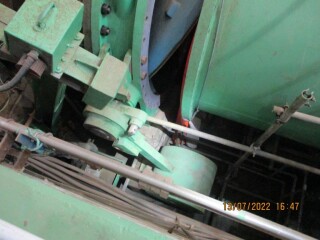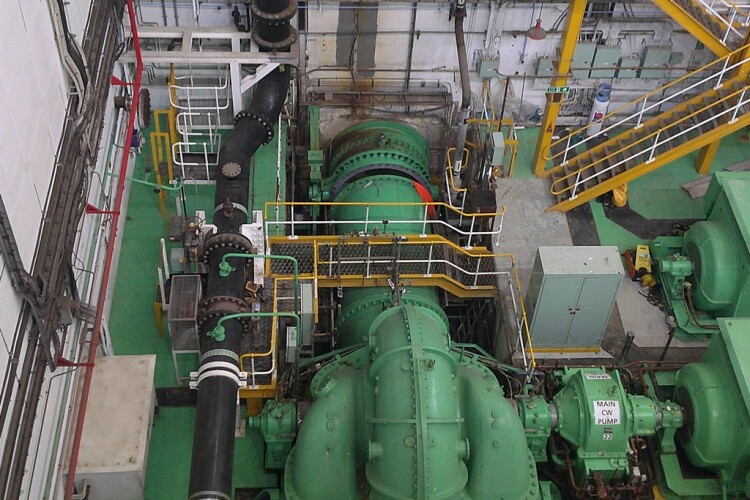EDF and Trillium Flow Services have been fined a combined total of £633,333 by the nuclear regulator after a scaffolder was injured by a falling two-tonne counterweight.
Scaffolder Colin Dell, 62, was carrying out work in the vicinity of the main cooling water discharge valves at the site in Kent when the accident occurred. On 13th June 2022 he was involved in scaffolding work but a hydraulic actuator, known as a ram, was not in place, which meant the unsupported heavy counterweight could fall at any point.
While the contractor was measuring up, the counterweight fell from a cooling water pump, striking Mr Dell’s hand and then his foot, and leaving him trapped. He sustained serious injuries to his left foot including broken and amputated toes for which he was taken to hospital where he remained for four days.
Mr Dell has been unable to return to work as a scaffolder and has been diagnosed with post-traumatic stress disorder.
While the incident was a conventional health and safety matter, and there was no radiological risk to the public, it was the Office for Nuclear Regulation (ONR) that brought forward a prosecution, as the industry’s regulator.
Both companies were sentenced on 14th November at Folkestone Magistrates Court where they pleaded guilty to an offence under Section 3(1) of the Health and Safety at Work etc Act 1974 for failing to ensure the health and safety of workers.
EDF was fined £533,333 and Trillium Flow Services was fined £100,000, plus prosecution costs of £15,034.73 each.
ONR director of regulation Dan Hasted said after the hearing: “We conducted a thorough investigation which identified significant shortcomings by EDF and Trillium Flow Services Ltd specifically their failure to follow the correct sequence for re-fitting the valve which resulted in the injuries to Mr Dell.
“We concluded that there were several missed opportunities that could have prevented this accident occurring.”


Dungeness B, which ended its power generation activities in June 2021 and is now in the defueling stage, has four main cooling water pumps which provide seawater to the main condensers – and each of these pumps is fitted with a discharge valve.
Those valves are driven by hydraulic rams, and if the power supply is lost to the ram a counterweight closes the valves.
But following maintenance work to remove a valve, a replacement ram was then not put in place, described by ONR as a ‘basic and fundamental misunderstanding’, which ‘created a risk…[of a] two tonne counterweight moving and potentially injuring or killing anyone who was working in its potential path.’
ONR’s investigation revealed a number of significant failings on the part of EDF in the lead up to the accident and a lack of learning from a past similar incident at Dungeness B, in 2006.
The regulator also discovered shortfalls in EDF’s planning and resources, with employees being asked to fulfil roles outside of their technical capabilities and tasks being undertaken without the correct signed approvals.
Measures to reduce risks were not taken and the company’s health and safety practices fell far below appropriate standards, ONR found.
Similarly, ONR also found that Trillium Flow Services Ltd was responsible for multiple failings. These included an unsuitable and insufficient risk assessment, a team relatively inexperienced in working on the main counterweight valves at the site, a lack of understanding of the operation of the valves and evidence of ill-informed decision-making.
Mr Hasted added: “EDF and Trillium Flow Services Ltd fully cooperated with us throughout our investigation and we welcome their guilty pleas. The safety of workers at nuclear facilities is absolutely paramount and we will continue to hold the UK nuclear industry to account in order to protect workers and the public.”
Got a story? Email news@theconstructionindex.co.uk



